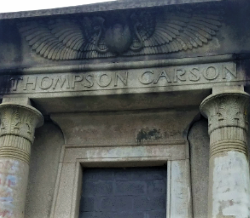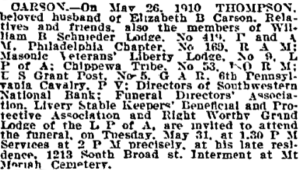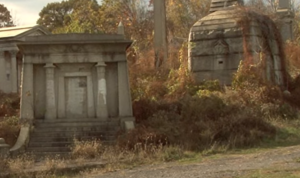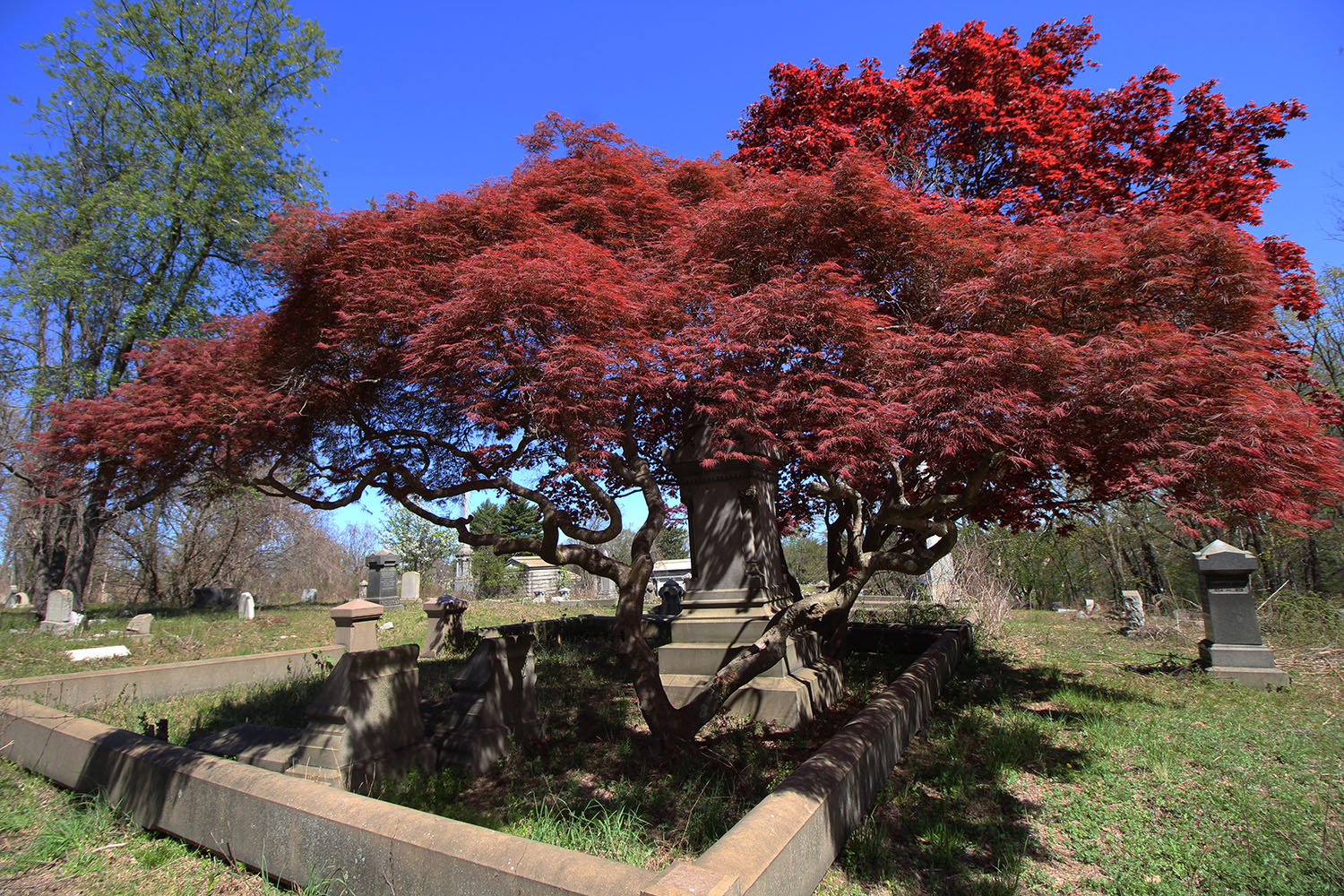Title: Army Sergeant, Civil War; undertaker
Birthdate: October 19, 1841
Death Date: May 26, 1910
Plot Location: Section 125, Lot 6

Thompson stepped off a ship onto American soil in New York in the summer of 1857. Less than four years later, while still a citizen of Ireland, he joined the Union Army to put down what was called “The War of Rebellion.”
It was thought the war wouldn’t last very long, so he enlisted with the First Delaware Infantry for a three month term beginning in May of 1861. Since it wasn’t put down in three months, he signed up for three years with Company D of the 6th Pennsylvania Cavalry in September. Private Carson saw some action, mostly in skirmishes, before he was discharged in 1864.
His patriotism wasn’t quenched, even after the war was over, so he enlisted on April 13, 1865 for a one-year term as a sergeant in the 7th Regiment, Veteran Volunteers. They served as guards and in ceremonial positions in Washington and Philadelphia. April 13, 1865 was also the day that he married Elizabeth “Lizzie” Ferguson. Two nights later the President was assassinated, so his service got off to an emotional start. Thompson returned to civilian life in April of 1866. Ten months later they welcomed their first son, Harry.
It may have been his experience with the atrocities of war that led him to his career as an undertaker. By the end of the 19th century the more popular term was mortician, which has since been replaced by the “funeral director.” In those days the viewing was usually held in the home of the deceased or a relative. The undertaker’s role was delivering a casket, preparing the body for viewing, and transporting it to the cemetery.
As a funeral director, the position expanded to include a “funeral home” to conduct the viewing, which might include a chapel to hold a service. It would also involve coordination with the cemetery for a graveside ceremony, the sale of caskets, registering death certificates, and other administrative details.
Thompson and Lizzie had three more children, Annie, James, and John. His business was in the 1300 block of South Street for over 30 years, moving in 1902 to 1213 South Broad Street. They also enjoyed a vacation property in Atlantic City for the last 20 years of Thompson’s life.
 His estate, appraised at $88,000, was mostly in stocks. He specified in his will that $2000 be given to each son, $4000 to Annie, the property to Lizzie, and the undertaking business to Harry, who ran the Carson Funeral Home until he died in 1920. Harry never married, and he left an estate of $24,000 to various relatives.
His estate, appraised at $88,000, was mostly in stocks. He specified in his will that $2000 be given to each son, $4000 to Annie, the property to Lizzie, and the undertaking business to Harry, who ran the Carson Funeral Home until he died in 1920. Harry never married, and he left an estate of $24,000 to various relatives.
Each of the children except James were eventually placed in the Carson mausoleum. Lizzie found another man and married John Hunter in 1912. It was just five years before he died, however, and he stipulated a mausoleum be built for him and Lizzie. It just happened to be in the lot next to the Carsons, on the right in this  photo. When Lizzie died in 1921 her children placed her in the Carson tomb, on the left. Her estate, worth an estimated $50,000-$100,000, was divided between them. Mr. Hunter was the only occupant of his mausoleum.
photo. When Lizzie died in 1921 her children placed her in the Carson tomb, on the left. Her estate, worth an estimated $50,000-$100,000, was divided between them. Mr. Hunter was the only occupant of his mausoleum.

Support the Friends of Mount Moriah
Help us in our mission to restore and maintain the beautiful Mount Moriah Cemetery by donating to our cause or volunteering at one of our clean-up events.

